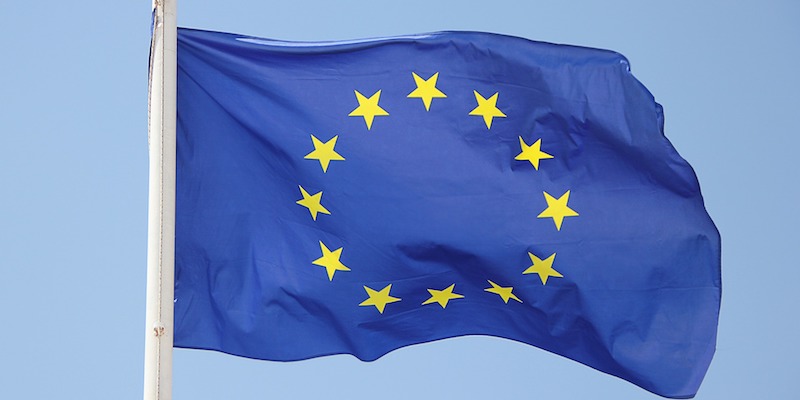Table of contents
How will Brexit affect you?

How will Brexit affect freelancers?
Are you a freelancer? We’ve got you covered, you can find everything you need to know in our dedicated freelancer section. Our Brexit freelancer guide will take you through all the key areas that you need to know before the divorce becomes final.
How Brexit Will Affect Freelancers.
How will Brexit affect small UK businesses?
Worried about the impact that Brexit will have on your business? We’ve put together this guide to take you through all the potential outcomes and how you can prepare for them.
How Brexit Will Affect Small UK Businesses.
How will Brexit affect EU companies working with UK freelancers?
Are you a small business owner based in the EU using freelancers from the UK? Take a read through our guide to understand the potential implications of Britain leaving the European Union.
How Brexit Will Affect EU Companies.
How has Brexit affected the freelance industry so far?
Find out how UK freelancers have already been affected by Brexit. We surveyed over 1,300 freelancers to hear their thoughts on everything Brexit.
Brexit Survey: The Impact On The Freelance Industry So Far [April 2019]
What is Brexit?

Definition:
The withdrawal of the United Kingdom from the European Union.
Background
According to the Oxford English Dictionary, the honour of first coining the phrase Brexit goes to Peter Wilding, founder, and director of the British Influence think tank. He used the term for the first time in May 2012 when predicting the potential outcome of the UK leaving the EU.
“Unless a clear view is pushed that Britain must lead in Europe at the very least to achieve the completion of the single market then the portmanteau for Greek euro exit might be followed by another sad word, Brexit.”
The inspiration for the word came from ‘Grexit’, which was initially used to describe Greece’s potential exit from the EU following the Greek financial crisis in 2012. The 2016 Brexit referendum was not the first time that the UK has held a referendum on whether to leave a European community. In 1975, Britain held its first-ever national referendum, when it asked whether the UK should remain in the EU’s predecessor, the EC (European Communities). On this occasion, however, the decision was taken to stay with a majority of 67.2% voting to remain. Following that, there was general stability for the UK to stay in the EC over the next 20 years. After the European Communities was restructured to become the European Union on 1 November 1993, Euroscepticism began to emerge once again. The UK Independence Party (UKIP) and the Referendum Party were formed in 1993 and 1994 respectively. The Referendum Party believed that there should have been a referendum to decide the nature of the UK’s relationship with the EU, whilst UKIP wanted Britain to leave the EU completely. Over the next 20 years, UKIP gained notoriety with success in the 2004, 2009 and 2014 European elections. This led to large numbers of Eurosceptics in the UK, heightened by the financial crisis of 2008, leading to bailouts for EU members such as Greece and the Republic of Ireland to name two. Increased Euroscepticism among members of the Conservative party resulted in David Cameron promising a referendum if the Tories were successful in the 2015 general election. The Conservative party duly took a majority at the 2015 general election. David Cameron was quick to reiterate his commitment to holding an ‘in-out’ referendum by the end of 2017. The referendum was held accordingly on Thursday 23 June 2016. As we know, the Leave campaign won with 51.9% of the vote to 48.1% for Remain.
What does Brexit mean for small businesses and freelancers?
In the UK, Brexit has been an incredibly divisive issue. This is clear from the vote itself – with only a 4% split between Remain and Leave. But how big an impact will Brexit really have? Armageddon did not take place on January 31st, 2020. So was the panic just scaremongering, or will we see a huge decline in the British economy as the effects of Brexit begin to be felt? Let’s look at what some of the experts have said on the subject.
A survey of 600 of the country’s top economists in 2016 revealed that 88% of them believed that the UK will be worse off outside of the EU. Why do they believe this? The two main concerns for the economists were leaving the single market and uncertainty leading to lower investment in the country. Most studies into the potential impact of Brexit believe that the uncertainty and reduced investment will only be short term, whereas leaving the single market could have a negative effect on the British economy for decades to come.
Will the UK save money from the membership fee?
This is difficult to calculate. Whilst the UK’s net contribution is £8bn a year, it is incredibly difficult to work out whether the financial advantages of free trade and investment into the UK outweigh the cost of membership.
What is the single market?
The single market is the platform that allows EU member countries to import and export with each other whilst paying no tariffs or facing barriers. This is one of the principal benefits for member countries as it encourages trade, including for many of the services that freelancers provide. According to The House of Commons, 45% of the UK’s exports went to the EU in 2018. And 53% of all our imports came from there. So, it’s a fair assumption to think that this degree of trade will be impacted upon if Britain leaves the single market (Brexit may have happened, but the details, including single market departure, are yet to be ironed out). The debate is around how large this impact will be, and whether the UK can benefit from striking better deals with countries they weren’t allowed to negotiate with before. Brexiteers have argued that SME businesses will have the opportunity to trade with more freedom, once they are freed of the shackles of EU membership. Major economies such as the UAE, Japan and India may be easier to fully capitalise on now that Brexit has formally taken place.
How will it affect investment in the UK?
Europhiles believe that the City of London could be affected badly as its status as a gateway to the EU is now lost. Another industry with big concerns is the car manufacturing industry, many carmakers have already threatened to move their car plants into the EU. There is fear among many of the top brands that tax-free exporting into Europe will no longer be possible following Brexit. BMW pulled some of its engine production work from the UK in July 2019 for fears over a no-deal Brexit, and have stated that they may be forced to withdraw all production from the UK if a workable Brexit plan is not soon in place. Toyota has voiced similar fears. Whilst Honda has confirmed that it will be closing its Swindon factory in 2021.
At present, all parties within Britain and the EU are in a state of negotiation. The reality is, if Britain can put together an acceptable deal to pass through parliament that is satisfactory to the EU, it is likely that the impact of Brexit will be smaller than feared. However, a lot hinges on the negotiations of the next few months. And if the UK can’t work out a passable deal, the business landscape will be considerably more volatile.
What will happen to immigration?
Immigration and free movement have been key focal points throughout the Brexit process. There are clear benefits to free movement for businesses and freelancers as it allows flexibility for recruitment and client acquisition. Whilst under EU law, the UK cannot prevent anyone from another member country from moving to and settling in Britain. This also means that British citizens have the freedom of being able to live and work in any EU member country without a need for visas. Why is this a problem? Free movement has led to huge increases in immigration to the UK, particularly from Eastern and Southern Europe. There is no doubt that the increase in immigration has led to some difficulties, specifically around housing and service provision, but Remainers argue that the economic benefits that have come from this far outweigh the negatives.
How will Brexit affect recruitment?
Another hugely divisive topic is how recruitment into the UK and indeed from the UK into the EU will be affected. As you would expect, Pro-EU campaigners have proclaimed that leaving Brexit could lead to huge job losses. Unsurprisingly, Brexiteers believe this to be untrue and have labelled these comments as simply ‘scaremongering’. So, what is the reality? Unfortunately, there is no simple answer to this, the reality is that neither Europhiles or Brexiteers can guarantee their statements due to the complex nature of this debate and the many variables to take into account. The biggest variable of all of these is what deal the UK can broker in the coming months. Despite officially no longer being members of the EU, the UK is currently enjoying a stay of grace while negotiations continue. The results of these negotiations will have a huge say in the impact of Brexit on recruitment. If free movement is stopped as expected, then what immigration barriers will the UK bring in? If there is a ‘hard Brexit’, then it is likely that Britain will face skills shortages across certain industries which will damage the economy’s productivity. If there is a ‘soft Brexit’, where free movement remains, the effect on recruitment is likely to be minimal. Unfortunately, at this stage, we are still no closer to knowing the terms of how the UK will leave.
The Brexit summary for businesses so far

Important dates of Brexit
The UK officially left the EU on Friday 31st January 2020. The UK now has until the end of the year to fine-tune the details of its future relationship with the EU. During this time the UK will essentially remain in the EU’s customs union, work in the single market and be governed by EU rules.
At present, there remains the potential to extend the Brexit transition period. The EU believes that this will be essential in order to obtain a deal satisfactory to all. But the UK will have to arrange this extension before 30 June 2020. And based on current rhetoric, this seems unlikely to happen. If it does not, the UK and the EU will end all current business and political relations, whether a deal has been brokered or not.
Impact of Brexit on the UK economy
What do we know at this point? Largely, there has been a consensus among economists that there will be a reduction in real per-capita income in both the UK and the EU following Brexit. This is because Brexit will create “new barriers to trade, foreign direct investment, and immigration.” However, these suggestions are disputed by those who campaigned for Leave as they believe the UK will benefit from no longer having to pay their membership fee to the EU. According to figures from 2014, Britain contributed a total of £18.8bn to the EU, around 1% of its total GDP. Of course, this doesn’t take into account the investment received back from the EU.
Impact on the UK job market
Clearly, a key concern for freelancers and business leaders is the impact Brexit will have on the job market. There are legitimate worries for both businesses and freelancers. From a business perspective, the main concern is the availability of talent. Many EU nationals who have moved to the UK are considering or have already moved back to their home country or another EU member nation. The UK has always been an attractive place to come and work for EU nationals, but Brexit will naturally have an effect on the numbers deciding or being allowed to emigrate to Britain. The absence of free movement, in particular, will be a big blow to the agility of the UK job market, and we may see more and more businesses turn to freelancers to plug gaps while they are searching for permanent talent. If Britain is unable to broker a sustainable deal with the EU before December 31st 2020, then the knock-on effect to the job market is likely to be far greater.
Impact of Brexit on UK law
Once the UK agrees on the terms of leaving the EU, there are many potential changes the government can make to UK law. At this moment in time, it is unclear how many changes they will be looking to make. One thing that has been made clear though is that the EU-driven GDPR data protection law will continue to be enforced after the divorce has been finalised. An area we know there will be changes to is the UK’s immigration policy. One of the biggest concerns for businesses is losing access to the 444 million strong talent pool based in the EU. This change is also a concern for EU citizens based in the UK with the uncertainty around their future right to work in Britain. We know that they will have to apply through the EU Settlement Scheme to continue to live and work in the UK after 30 June 2021. To counteract worries for businesses over the new immigration laws, one of the options that the government has spoken about is a points-based immigration system for EU nationals. The white paper was published in December 2018 and suggested that the new skills-based system would allow employers to gain access to the skills that add the most value to the UK economy.
Impact of Brexit on UK diplomacy
Britain will likely see an expansion to its current diplomatic services as the importance of developing global influence increases. In 2018 Jeremy Hunt – Britain’s then Foreign Secretary – said, “We have to reinvigorate and expand British diplomacy. In the past, you may have heard of retrenchment and retreat, not anymore.” Hunt committed to recruiting for 335 diplomatic positions overseas, 328 in London and 329 new local employees in a bid to reinforce Britain’s status as an internationalist and open nation.
Impact of Brexit on the EU and other member countries
As with many areas of Brexit, the full implications of how it will affect the current EU member countries won’t be known until we know the full details of how Britain will be leaving. We do know that the EU will lose around 5% of its current budget as this is what the UK currently provides. This will either lead to a reduced budget or the remaining EU countries will have to pick this up – most likely Germany and France picking up a large proportion. Trade links to the UK are one of the other major concerns for EU countries, particularly the Republic of Ireland which is deeply dependent on trade with the UK because of its proximity and land border with Northern Ireland. It’s crucial for countries like the Republic of Ireland, Germany, France, Switzerland, and the Netherlands to maintain similar trade levels.
What are the benefits of Brexit?

Let’s be honest, throughout the Brexit process, most of the news has focussed on the negative sides of Brexit. There’s no doubt that the negotiations between the UK and the EU have been hard-fought, with the EU taking a firm approach as a warning to other member nations. But what are the potential benefits for the UK once the process has been completed? One of the clear opportunities for the UK is to renegotiate trade deals that they weren’t able to before. As a member of the EU, Britain is currently ruled out of holding an independent seat at the World Trade Organisation (WTO), this will no longer be the case once the terms are agreed. This could provide more freedom for businesses and freelancers and an opportunity to work closely with major economies such as Japan, India and the UAE. The UK will also be able to negotiate new deals with political allies like Australia, USA, and Canada that could create even stronger ties – particularly from a business perspective. Of course, this is very much dependent on how the UK approaches negotiating new deals, but there is a clear long-term opportunity there. Freelancers may see an instant benefit from Brexit as uncertainty turns more businesses to using contingent workers. Whilst there is a potential negative impact on freelancers working with EU organisations, there is every chance that there will be a short-term increase in demand for freelancers from businesses in the UK. Freelancers offer the opportunity for businesses to continue with current open projects, whilst not having to commit to a permanent employee’s salary. This will lead to many organisations looking to hire contingent workers to plug gaps before they have the commitment to their long-term budget.
All the Brexit stats so far
There have been many predictions made over the course of the Brexit process. But what has happened so far? It’s been nearly 4 years since the result of the referendum was announced. And Britain only officially left the EU on January 31st 2020, but we can still see some early changes. Use the graphs below to predict where you think the statistics currently sit and then reveal the true answers.
Pound vs. Euro
Currency strength is one of the first places many look to demonstrate a nation’s economic prospects. How do you think the pound has performed vs. the euro since the referendum result? Source: Office for National Statistics
Migration from the EU
Immigration was a key factor in the result of the referendum. With the inevitability of free movement ending once Brexit takes effect, how do you think migration from the EU in to the UK has been affected? Source: Office for National Statistics
UK GDP
The UK has the second largest GDP in Europe behind Germany. Many economists believe that the UK’s GDP will suffer greatly from the impact of Brexit. How do you think it has fared so far? Make your prediction below. Source: Office for National Statistics
UK inflation
Inflation rates and GDP are closely interlinked to each other. Has inflation in the United Kingdom been impacted in the same way as the GDP since June 2016? Source: Office for National Statistics
Number of job vacancies
Lots of jobs mean a strong economy. With uncertainty surrounding the UK’s economy, how has the jobs market been affected so far? Source: Office for National Statistics
Brexit Quotes from Renowned Business Leaders
Supporters of Brexit
Who are the business leaders that are supporting Brexit? Below are some of the most interesting quotes from some of the country’s’ biggest advocates of Brexit. Sir James Dyson

The founder of the revolutionary Dyson vacuum cleaner has been vocal on his support for Brexit and has made his anti-EU sentient clear. In November 2017 he stated:
“If you walk away they’ll come to us because they want to export all their products to us. They will come back to us. We are in a very very strong position, incredibly strong position. We shouldn’t give them any money, we should just walk away and they will come to us.”
Sir Jim Ratcliffe

As the Chairman and CEO of the Ineos chemicals group, Ratcliffe has been named by the Sunday Times as the richest man in Britain. In the build-up to the 2016 referendum he said:
“The Brits are perfectly capable of managing the Brits and don’t need Brussels telling them how to manage things, I just don’t believe in the concept of a United States of Europe. It’s not viable.”
Tim Martin

Martin made his money by growing the JD Wetherspoon pub chain into the third largest chain in the UK over the past 4 decades. He has made his feelings clear on the current deal that Theresa May has put together.
“Previous referendum results on major constitutional issues have always been respected in the UK, but if parliament votes either for Theresa May’s ‘deal’ which keeps us in the EU by the back door or to remain in the EU, the referendum result will not have been respected. This may well have significantly adverse economic consequences, as the country turns in on itself to endure months, or years, of stifling constitutional argument.”
Anthony Bamford

One of the Leave campaign’s largest backers, Lord Bamford is the Chairman of digger company, JCB. He strongly believes that the UK will prosper outside of the EU with or without a deal.
“I feel compelled to say this about a no-deal Brexit; there is nothing to fear from trading on World Trade Organisation (WTO) terms,” he continued, “Trading with Australia on WTO terms is as natural to us as trading with Austria on single-market terms.”
Peter Hargreaves

Founder of financial services company, Hargreaves Lansdown, Peter Hargreaves has previously called for a no-deal Brexit as the best option for the UK.
“The best option is no deal. No deal would give us free trade with Europe because the three biggest economies in Europe, outside Britain, are huge exporters to the UK.”
Simon Wolfson

Wolfson is the Chairman of the Next retail chain. He believes that the ability to strike trade deals with emerging markets could be economically rewarding for the UK.
“From Canada, Australia and New Zealand, through to South Korea and Singapore, great nations have proven that independence need not mean isolation or impoverishment. Delivered in the right way, an open Brexit could – and I passionately believe will – herald an economic renaissance for our country.”
Opposers of Brexit
Now let’s take a look through six of the most interesting quotes from business leaders on the Remain side of the argument. Sir Terry Leahy

The former CEO of Tesco believes that leaving the EU will lead to food price rises. He commented in 2016:
“Food prices will go up if we vote for Brexit as the supply chain would be severely disrupted and we would be paying tariffs. Consumers are a big part of the recovery, and we should protect that recovery, not risk it.”
António Horta-Osório

Horta-Osório is the Chief Executive of Lloyds Banking Group. He has a similar view on Brexit as the significant majority of those in the financial services industry.
“For each 1% of trade that we lose with the EU, we will have to increase trade with the US by 3% and with China by 9%, just to stay still. This shows how important the negotiations with the EU are.”
Jamie Dimon

Another financial services major player, Jamie Dimon, the CEO of JPMorgan Chase & Co. has also expressed his concern, particularly if the outcome was a no-deal Brexit.
“A hard Brexit will be a disaster for Great Britain. We don’t think it’s going to happen, because it’s bad for Europe too.”
Ian Livingston

The former CEO of the BT Group believes that investment into the UK has been negatively affected since the referendum.
“The uncertainty that businesses are feeling today is increasingly problematic. In such an environment, that means that investment in the UK is being deferred. I believe many people were misled about the ease of Brexit, but we are where we are.”
Alice Bentinck

The co-founder of Entrepreneur First was very much on the Remain side of the Brexit debate. Despite this, Alice Bentinck feels that there is no reason for small startups in the UK with the right product and people to not succeed.
“There is no denying that there’s change afoot in the UK startup scene and the landscape is likely to evolve. The world of business is always challenging and it’s never easy. However, you have to see opportunities in those challenges and adapt. In the end, one thing is certain: startups with the right product, people, attitude and growth plans will still attract investment and succeed.”
Bill Gates

Arguably the most famous entrepreneur on the planet even had his say on Brexit before the 2016 referendum.
“While ultimately a matter for the British people to decide, it is clear to me that if Britain chooses to be outside of Europe, it will be a significantly less attractive place to do business and to invest.”
However, following the Brexit result, he has since said that he believes Britain can maintain its place as a world-leading science and technology hub.
4 Brexit myths you should ignore

We’ve all heard them throughout the past 4 years. Whether it’s ‘scaremongering’ or false promises, there have been many exaggerated claims from both sides of the argument during the Brexit process that have caused anger and anxiety among the population. We’ve put together our top 4 myths that have popped up during the Brexit campaign and indeed since.
1. The UK will run out of food and medicine
This myth originates from the discussion around a ‘hard Brexit’ with no deal in place. There is no doubt that there will be complications if the UK leaves without a deal, and there will likely be delays to imports. However, the government has taken action to stockpile food and medicine in such a case. The delay to imports at the border will be short term and will not last long enough for the UK to run out of either food or medicine. Ian Wright, CEO of the UK Food and Drink Federation said in the case of a no-deal Brexit, “We won’t run out of food, but you will find that your favorite brands are sometimes in short or no supply.” However, medicine may be a different story, with The Guardian claiming that Brexit was ‘already causing medicine shortages’ at pharmacies in England in August 2019.
2. The UK will have an extra £350m a week to spend on the NHS
This has to be the biggest myth in this list. It certainly caused the biggest stir in the news. You have no doubt seen the famous image of the bus proudly stating the NHS will receive an extra £350m funding each week once the UK doesn’t have to pay the EU membership fee. It was so untrue in fact, that on the morning of the referendum result, Nigel Farage backtracked and claimed that he had advised the Leave campaign not to use it.
3. 3 million will be unemployed following Brexit
This was one of the big claims that the Remain campaign made during the referendum build-up. However, since then we have not seen a huge drop in demand for goods and services into the UK. Of course, there is still the threat that big organisations will move their European HQs elsewhere, but this is extremely unlikely to lead to the number that was stated. The UK jobs market will likely suffer in the short term but it is very hard to predict how it will look once new trade deals have been agreed.
4. Brexit was a working-class revolt
Many view Brexit as a revolt against the establishment. The reality is that people from all walks of life voted for Brexit – whilst not always as a majority – in high numbers. It’s a fact that the working class voted in favour of Brexit, but it is also true – according to polling data – that those in administrative or professional roles were more likely to vote for Brexit than manual labourers. The results demonstrated that the vote was close consistently across all social classes.
Statement from PeoplePerHour CEO, Xenios Thrasyvoulou

Brexit has been a controversial and divisive subject over the past 5 years. As an important voice in the UK freelance economy, we feel it is our responsibility to provide our freelance and business community with a comprehensive Brexit guide. Whilst – even at this late stage – it is incredibly difficult to make accurate predictions, we believe this guide offers insights that can help freelancers and SME owners to prepare for the inevitable changes that are about to come. Anxiety over Brexit for freelancers and business owners is high. Our Freelancer Confidence Index Q4 2019 – in association with IPSE – revealed overall confidence in the economy was at its lowest level since the index began. However, we really do believe that while there will be barriers in some areas, there will be opportunities in others. It is vital to pick out these opportunities over the coming weeks and capitalise on them. Whatever side of the fence you sit on, it is crucial to make preparations for every circumstance, including a no-deal Brexit. There are still many twists and turns to come in the process, that’s why our Brexit guide will continue to be updated as each new revelation comes to the surface.




Comments